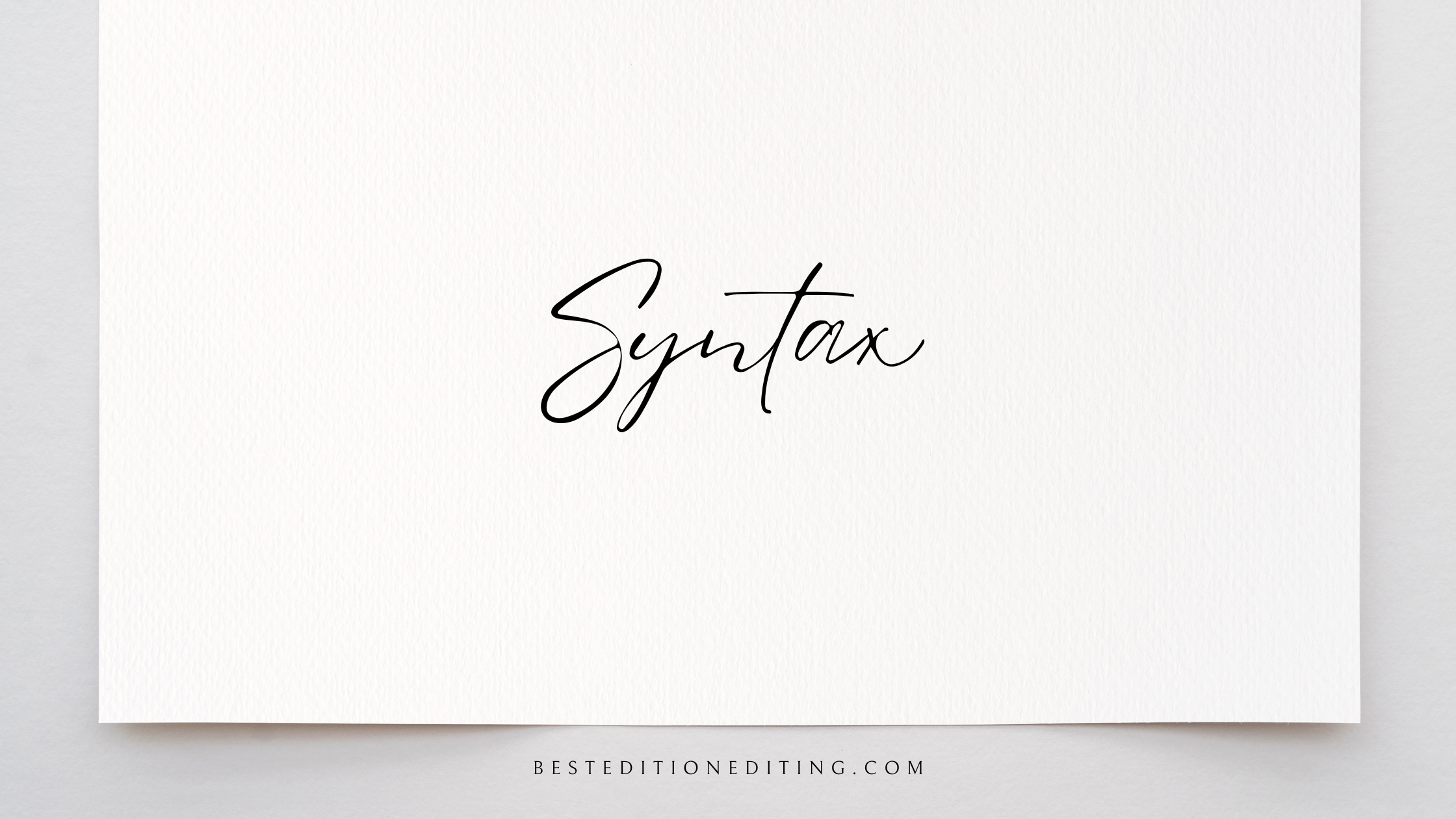For a lot of people, syntax is a scary word with an obscure meaning. It’s something that teachers don’t cover much in schools, and as such, many people don’t understand all of its nuances. So, what is syntax? Essentially, syntax is the proper choice of words for each sentence. It covers topics such as word choice, denotation and connotation, and sentence agreement.
Word Choice
One subject that connects to syntax is word choice. In the English language, there are numerous words that mean the same thing. However, the audience of an individual piece will determine what word is used. For example, take the word “toilet.” If you’re speaking to a room full of adults, this word would be the correct choice. But would this word change if you were speaking to a toddler? Would you perhaps say “potty” instead? That is an example of syntax. You adjust your words depending on your audience.
In fact, choosing the wrong word can cause you to lose credibility with your audience. Daniel Oppenheimer, a psychologist at Princeton University, actually proved this in a 2006 study. He handed variations of the same sentence to a group of readers and asked them to evaluate the writer’s intelligence based on the sentence. In the end, the more complicated the sentence, the worse each writer was rated. So, wordy sentences and complex words aren’t going to increase credibility. In fact, they have been proven to do the exact opposite.
Denotation and Connotation
Have you ever heard the phrases “denotation” and “connotation”? I’ll admit these phrases are still relatively new to me. However, even if you haven’t heard the direct terms, I have a feeling you understand the concept. Denotation refers to the dictionary definition of a word, whereas connotation refers to the tone behind the word. Have you ever been reading a book and come across a verb that just didn’t seem to fit? That could’ve been an issue with connotation.
I have a personal example of this very concept. When reading a section of my book, I was struggling to come up with a word that meant a loud whisper—the kind that is barely even a whisper. When I discussed this with my mother, she suggested I use the word “hiss.” To her, the denotation of this word meant “to whisper loudly.” However, I did not want to use this word because it had an angry connotation. “Hiss” has a different connotation than “whisper.”
If you’ve ever looked up a word in a thesaurus, you probably understand this concept pretty well. Let’s say, for example, that I am trying to find an alternative for the word “flutter.” Here is what Thesaurus.com provides as possible choices:
Although these words mean similar things, there is a wide difference in tone. To most people, the word “tremble” doesn’t mean anything close to what “wobble” means. It creates an entirely different picture in their mind.
Connotation can be a tricky concept, though, and some people have a better sense of it than others. This is where additional readers come into play. Even editors need people to look over their work, and issues like this are the reason. Odds are, you don’t know the connotation of every single word out there. Allowing other people to read your work is the antidote for this shortcoming.
Word Agreement
Another large portion of syntax concerns word agreement. Pronouns need to connect to antecedents, and subjects need to connect to verbs. For the most part, this concept isn’t all that complicated. Usually, these disagreements are quite obvious. For example, look at this sentence: “She brushed his hair.” The antecedent “his” doesn’t connect to the pronoun “she.” Thus, unless there is a second person in the room, there is an error with the pronoun-antecedent agreement.
Agreements can get complicated, however, when a prepositional phrase is thrown into the mix. For a lot of writers, it is instinct to make the verb agree with the word right next to it. However, this doesn’t work when the subject is followed by a prepositional phrase. Here’s an example that demonstrates this: “The mother of my cousins is my aunt.” If the verb is connected to the word right next to it, the sentence becomes, “The mother of my cousins are my aunt.” Grammatically, though, this is incorrect. The subject of this sentence is “mother,” not cousins. So, it’s necessary to ignore the prepositional phrase. At times, this technique may feel wrong. Trust me, though, ignoring prepositional phrases will never send you astray.
What You Need To Remember
In my experience, using correct syntax often comes from instinct. You may not understand the exact term for why a word or verb doesn’t seem to fit, but you can usually sense when it doesn’t. Once you understand the reasoning, though, it becomes exponentially easier to solve the problem. Syntax may seem like a scary word, but understanding its concepts will only make you a better writer and editor. It’s worth a few minutes of study because it will save you time in the long run.











View comments
+ Leave a comment